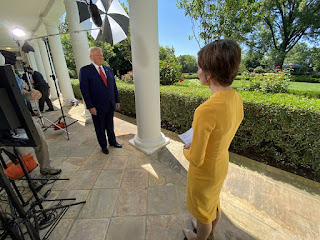This blog is produced on land belonging to the Lenape people.
Cut the pastry for a one-crust pie, and it's resting in the refrigerator. One of the bloody-minded things I'm up to today involves forcing people to eat pumpkin pie and (theoretically) discover that it's really good. At the big extended-family Thanksgiving in New Jersey we've missed since the pandemic began (and which I don't feel great about missing again—maybe next year!) there are about five pies so you've always got an excuse for skipping the pumpkin, but this is a small one and I'm managing it. Tough luck, skeptics!
The other particularly bloody-minded thing is that I spent an ungodly amount of money on a "heritage" turkey (Narragansett or Bourbon Red), also in the fridge, since yesterday morning, in a dry brine of fresh herbs, salt and pepper, and juniper berries, in a similar effort to convince them that turkeys are fully edible. It's going to be fantastic, too. With oysters in the stuffing, not dressing (no need to worry about bacteria with these pampered birds, I'm told). The oysters aren't bloody-minded but rather on request. I like how they work too, though, almost dissolving into the mix but contributing a beautiful briny perfume.
1:00
The pie is in the oven for its final baking, with a crust somewhat the worse for wear, and some pumpkin filling dribbled out to the oven floor, where it's creating some smoke.
I'm thankful I almost certainly don't have prostate cancer, if you want to know the truth. I got a bad test result at the beginning of October, saw a urologist and got some meds, and a very good test result in the email yesterday. It's been a pretty stressful couple of months, with a lot of medical attention neglected over the last years. I also have cataracts in both eyes, which I can't start fixing until the end of December (I thought it was under socialized medicine that you had to wait in line for three months for essential care), and they make working difficult, both in the day job and here at the blog; rather than a blur when I'm looking at text onscreen I get a sense as if the air ahead of me were divided into vertical planes and the text is inscribed on a plane somewhere behind the one I'm looking at.
It's weird that I'm doing this, but the post I'm working on is not as exciting as I want and I always do some kind of Thanksgiving post, usually on the plight of North America's Indigenous peoples. I'm thankful, by the way, not just on their behalf but everybody's including my own, that the most blatantly racist anti-Native president in recent American history is out of office and that the current president is Joe Biden, whose plans as he signaled them shortly after inauguration
“It is a priority of my Administration to make respect for Tribal sovereignty and self-governance, commitment to fulfilling Federal trust and treaty responsibilities to Tribal Nations, and regular, meaningful, and robust consultation with Tribal Nations cornerstones of Federal Indian policy,” Biden wrote.
were kind of breathtaking, when you think about it, and accompanied by real-world progress in the unprecedented commitment to hiring Indigenous people for Senate-confirmed positions, financial commitments to tribes in the American Rescue plan and Infrastructure Investment and Jobs Act, and attention to the protection of culturally and spiritually important territory (though not above criticism). And the revival of the Obama administratioin's annual Tribal Nations Summit dropped, of course, under the Trump administration—this year's will be held Wednesday and Thursday.
Even as the Supreme Court seems intent on ditching the Indian Child Welfare Act
passed by Congress in 1978 to address the nationwide epidemic of American Indian children being forcibly removed from their homes by child welfare agencies and placed into non-Native homes at disproportionate rates. Throughout history, federal and state governments have sought to undermine and threaten the existence of tribes via the forced separation and assimilation of Native children.
6:00
Turkey's been in for a couple of hours, which means it will be coming out fairly soon (it's just eight and a half pounds), assistants have been peeling potatoes, my intention of boycotting Qatar has weakened for US vs. Wales, of all the silly places for one's resolve to break.
Somebody on the radio mentioned that the first fourth-Thursday-in-November proclamation was issued by President Abraham Lincoln, in 1863, and I thought I'd look up the text, apparently written by radical Republican secretary of state William Seward, and what I noticed is that it's got nothing to do with Miles Standish and Priscilla Mullins and Squanto and the shining city on a hill; and this being the greatest country in the world.
Indeed, what the Union was invited to be grateful for in November 1863 was basically that they hadn't lost the war yet;
In the midst of a civil war of unequalled magnitude and severity, which has sometimes seemed to foreign States to invite and to provoke their aggression, peace has been preserved with all nations, order has been maintained, the laws have been respected and obeyed, and harmony has prevailed everywhere except in the theatre of military conflict; while that theatre has been greatly contracted by the advancing armies and navies of the Union. Needful diversions of wealth and of strength from the fields of peaceful industry to the national defence, have not arrested the plough, the shuttle or the ship; the axe has enlarged the borders of our settlements, and the mines, as well of iron and coal as of the precious metals, have yielded even more abundantly than heretofore. Population has steadily increased, notwithstanding the waste that has been made in the camp, the siege and the battle-field; and the country, rejoicing in the consciousness of augmented strength and vigor, is permitted to expect continuance of years with large increase of freedom.
And bought Alaska.
Though Wikipedia suggests that Henry Wadsworth Longfellow's 1858 poem "The Courtship of Miles Standish" had something to do with the 1863 Thanksgiving proclamation,
In the United States, the story brought the Pilgrims to the forefront of American culture, contributing to the establishment of a national Thanksgiving holiday in 1863.
Because not only does the Proclamation not mention the First Thanksgiving, Longfellow's poem (composed in the same weighty hexameters as Evangeline, "In the old Colony days, in Plymouth the land of the Pilgrims/To and fro in a room of his simple and primitive dwelling...") doesn't seem to mention the First Thanksgiving either. It's got lots of social details about the Pilgrims, but the Indians don't play any personal role at all. No doubt the feast described in the primary sources (which wasn't a Thanksgiving, a religious event, but a multiracial party) took place, but the national holiday decreed by Lincoln had nothing to do with it, or Longfellow either—all this narrative we have so much fun with in South Park and The Addams Family is stuff that was actually invented after the end of Reconstruction.















.jpeg)














